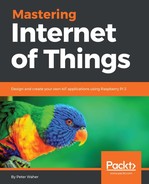From the preceding vision, we can derive a set of keywords immediately:
- Interoperability (as opposed to proprietary or bespoke): Without interoperability based on standards, there can be no ubiquitous access to devices.
- Openness (as opposed to closed off or sealed): The members of the society collectively pay for its authorities to perform its duties. The data they collect must be accessible by members of the society. If not, any decisions they make will be made using sub-standard information that is not smart. Access to devices also means devices must be open in the sense that they can be reutilized by different parties. Requiring service providers to install duplicate devices in the same areas where existing devices doing the same thing already exist, just to get the same type of data, is not smart.
Open does not mean free. A restaurant can be open to the public, but it does not mean you can go there and eat for free. It means, the restaurant cannot deny you entry if you want to go there based on your identity. The internet is open, but you pay to access it.
- Localization (as opposed to globalization): Globalized efforts can never respond to local needs. A society cannot be smart unless it can organize itself at a local level and adapt to local challenges. Technology must meet this need, not work against it.
- Identity (as opposed to anonymous access): Openness on the internet places a lot of responsibility on the shoulders of those publishing information. As we have seen, strongly authenticated identities protect the publishers of information, by allowing them to make proper security decisions on who to allow access (authorization). Anonymous access protects malicious users. Strong identities protect publishers. A Smart City must protect those that publish devices and data. Therefore, it must support strongly authenticated identities.
Strong identities do not imply privacy intrusion
Using strong identities means you must authenticate yourself before you can participate in a meaningful conversation. A privacy intrusion occurs when somebody else uses information about you without your knowledge or consent (or some other legal basis). Anonymous communication gives a false promise of protecting you against such intrusions, it doesn't. Privacy legislation does (more on this in a later chapter). You don't protect your privacy by forcing everyone, including yourself, to wear blindfolds when you communicate with them. Privacy means you have the right to choose with whom you communicate and have confidential communication with. You can only do that if you know who the other party is. It also means that others are not allowed to listen in on confidential conversations. Only good privacy legislation together with strong identities can help you protect your privacy.
Using strong identities means you must authenticate yourself before you can participate in a meaningful conversation. A privacy intrusion occurs when somebody else uses information about you without your knowledge or consent (or some other legal basis). Anonymous communication gives a false promise of protecting you against such intrusions, it doesn't. Privacy legislation does (more on this in a later chapter). You don't protect your privacy by forcing everyone, including yourself, to wear blindfolds when you communicate with them. Privacy means you have the right to choose with whom you communicate and have confidential communication with. You can only do that if you know who the other party is. It also means that others are not allowed to listen in on confidential conversations. Only good privacy legislation together with strong identities can help you protect your privacy.
- Ownership: Why would somebody investing in producing data or installing devices let somebody else access them? Unless there is some form of compensation, it would only increase load and degrade system performance, while others would be able to deliver the same kind of service you provide, at a lower cost. To incentivize parties to open access to data and things, Smart Cities must be based on ownership of data and things and have an economic feedback model where consumers of data and things compensate owners for access:

Smart City foundation
